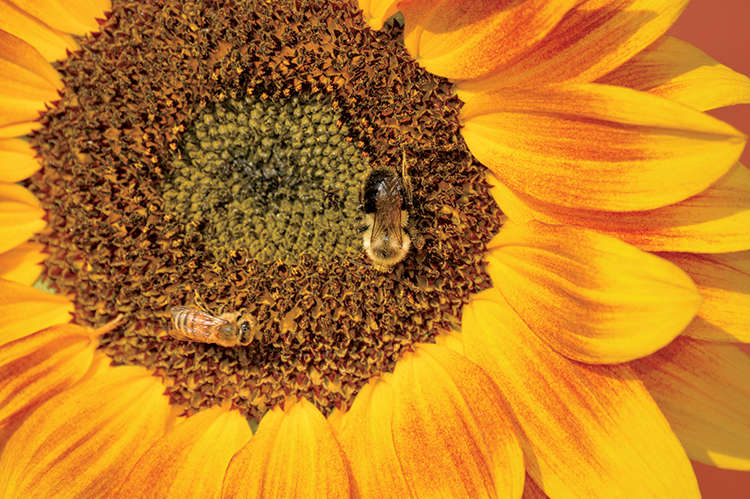Home > Connecticut > Connecticut Environment > Bee Kind: Spotlight on Connecticut Pollinators
Bee Kind: Spotlight on Connecticut Pollinators
In partnership with: Connecticut Department of Agriculture
 Connecticut is a produce powerhouse, growing everything from apples to peaches to squash. But none of these tasty, valuable fruits and vegetables could continue to exist without a little help. Enter pollinators.
Connecticut is a produce powerhouse, growing everything from apples to peaches to squash. But none of these tasty, valuable fruits and vegetables could continue to exist without a little help. Enter pollinators.
“Many fruit and nut crops need insect pollinators in order to produce good yield,” says Dr. Kim Stoner with the Department of Entomology at the Connecticut Agricultural Experiment Station (CAES). “Some examples of Connecticut crops that need pollination are blueberries, cranberries, melons, pumpkins and more.”
She adds that for most crops, honeybees are the most important type of pollinator, as they can be easily moved to a crop that is grown on a large scale, such as apples.
Dr. Richard Cowles, also of CAES, says that without pollinators, much of Connecticut’s fruit and vegetable yields would be greatly diminished or nonexistent, significantly affecting the state’s economy.
Connecticut has 1,400-plus registered beekeepers who manage around 7,400 hives, although that number fluctuates. The state is also home to a great variety of pollinators, with 349 confirmed bee species. But just like the rest of the country, Connecticut’s pollinators are threatened.
As a result, a bill was passed to address several pollinator health issues, protect pollinator habitat and more.
“The bill addresses ways to encourage more pollinator habitat in the state – on protected farmland, along state highways and in utility rights-of-way,” Stoner says.
The Connecticut Department of Agriculture, through the USDA Specialty Crop Block Grant, is funding critical scientific work at CAES to improve pollinator health and develop practices to enhance habitat. This includes Stoner’s work planting, maintaining and evaluating a habitat for specialty crop pollinators, as well as Cowles’ research breeding bees resistant to parasitic varroa mites, a key to poor honeybee health.
Cowles says that because the bill ended up being well balanced in addressing multiple issues, it’s a great model for action by other states. And although the bill is important, consumers need to recognize pollinator health starts in their own backyards.
“They can consider beautifying their landscape with ornamental plants that attract bees and pollinators,” he says. “Connecticut nurseries are aware of the importance of their plants to pollinators, and are doing everything they can to grow attractive, pest-free plants, also healthful to pollinators.”
Stoner says that one of the most important ways consumers can help is to limit the use of pesticides and insecticides.
“Because bees are insects, most insecticides will kill them while also killing the target insects,” she says. “It’s important to practice integrated pest management. Don’t apply pesticides as a preventative measure when you don’t have pests at a damaging level.”



